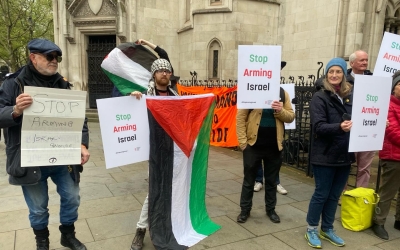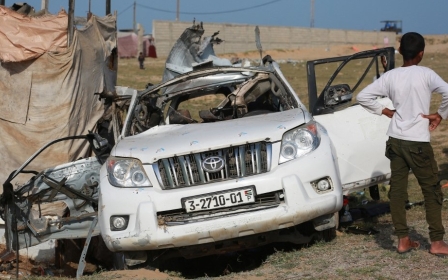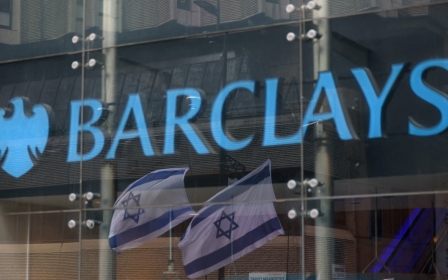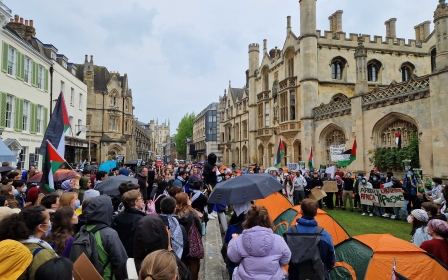War on Gaza: UK yet to see 'credible' Israeli plan to protect civilians in Rafah
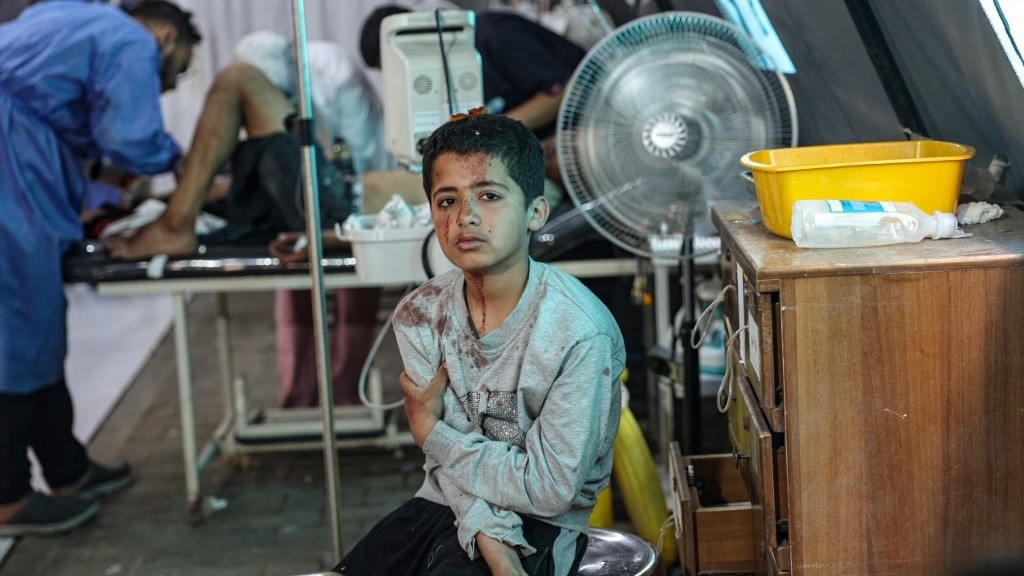
The UK government has not seen “a credible plan” from Israel about how civilians will be protected in Rafah, the UK's deputy foreign secretary told MPs on Tuesday.
Andrew Mitchell’s comments came a day after the Israeli military told up to 250,000 Palestinians to leave the southern Gaza city ahead of a threatened ground assault, and then intensified its ongoing carpet-bombing campaign on the area.
Early on Tuesday, the Israelis seized the Rafah border crossing, cutting off a key aid route into Gaza where a top UN official has said there is a “full-blown famine” in the north now heading south.
“We are deeply concerned about the prospect of a military incursion, given the number of civilians sheltering there and the importance of that entry point for aid,” Mitchell said.
“Israel must facilitate immediate, uninterrupted humanitarian access in south, especially the entry of fuel and ensure protection of civilians and safe passage for those who wish to leave Rafah. As yet, we have not seen a credible plan to protect civilians.”
In a heated debate, a dozen MPs from various parties repeatedly asked Mitchell to outline the consequences Israel would face if Rafah is invaded - but expressed frustration in receiving little further detail beyond the minister’s previous statements to parliament.
“Is there any red line? Is there anything the Israeli government could do which would so appal the government that it would feel the need to act?” said Conservative MP Kit Malthouse.
Labour MP Imran Hussain asked why the UK had not immediately thrown its support behind the International Criminal Court’s investigation into war crimes committed in the occupied Palestinian territories and halted arms sales.
'I see no levers that the government is using to influence the Israeli government'
- Labour MP Debbie Abrahams
“It is shameful that the government comes here again today with nothing,” he said.” What is the UK government doing to stop this bloodshed and massacre about to happen in Gaza hours from now?”
Labour MP Debbie Abrahams said: "Quite frankly, I've been absolutely gobsmacked by the deputy foreign secretary's response. I see no levers that the government is using to influence the Israeli government in their behaviour."
In contrast, Conservative MP Suella Braverman asked Mitchell to “confirm that the UK government will maintain steadfast and resolute support for Israel as she finishes the job to eliminate Hamas from Gaza”.
Labour MP Andy McDonald said the comment “sent a chill through this chamber and through the homes of millions of people in our country because they know what that means,” he said. It means an "increased number of children being massacred in Rafah”.
Arms exports continue
Last week, Mitchell told parliament, that given the number of civilians sheltering in Rafah, it was “not easy to see how such an offensive could be compliant with international humanitarian law”.
The comment was important because, under its own arms exporting criteria, the UK government is obligated to suspend licences for arms exports if it determines that there is a clear risk that British weapons might be used to violate international humanitarian law.
On Tuesday, Mitchell maintained that the government’s position on Rafah had not changed.
“The words I have used today answering the same question are virtually the same,” he said. “I made it clear there would have to be a plan which respected international humanitarian law and we have not yet seen such a plan.”
He also said that the UK government would continue to license the sale of arms to Israel, a position that Foreign Secretary David Cameron announced in response to a reporter’s question during a press conference in Washington, DC, on 9 April.
Since the announcement, government documents filed in a legal challenge to UK arms sales to Israel in the High Court have revealed that the government took that decision based on assessments that did not factor in the attack on the World Central Kitchen convoy which killed three British nationals just a week before.
The Foreign Office assessment that served as the basis for the decision was focused on Israel’s compliance and commitment to abide by international humanitarian law between 18 December and 29 February.
McDonald asked Mitchell, given the time lag since the last legal assessment, what confidence he had that 13m ($16m) pounds worth of drones licensed for sale to Israel at the end of 2022 and 10m ($11m) worth of military support vehicles approved last May “will not result in the death of civilians in Rafah”.
“He, with great skill, seeks to flush out a different answer. I have nothing to add to what I have already said on the subject of arms sales,” Mitchell said.
During the debate, Mitchell said that “a generous offer”, proposed by Egypt, had been put on the negotiation table in the truce talks between Israel and Hamas last week.
Israel, he said, had accepted the deal. “We need to see Hamas accept a viable deal and we can start building a momentum towards a permanent sustained ceasefire,” he said.
Mitchell was not asked, nor did he offer further, details about the deal. He did not reference a US-mediated ceasefire proposal that Hamas accepted on Monday night, which Israel rejected.
Middle East Eye propose une couverture et une analyse indépendantes et incomparables du Moyen-Orient, de l’Afrique du Nord et d’autres régions du monde. Pour en savoir plus sur la reprise de ce contenu et les frais qui s’appliquent, veuillez remplir ce formulaire [en anglais]. Pour en savoir plus sur MEE, cliquez ici [en anglais].


